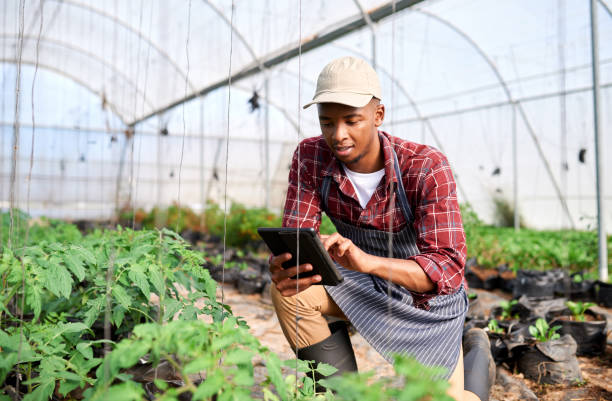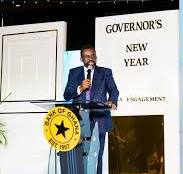The Conversation
First Published,July 30,2025
Extraordinary lecturer at the Centre for Human Rights, University of Pretoria)
Many African countries are already struggling with heavy debt burdens. Climate change is making this worse. Africa contributes the least to global emissions but suffers the most from extreme weather, rising temperatures and drought.
These disasters affect not just people’s livelihoods but also national revenues, making debt repayment harder. Yet traditional debt contracts don’t account for this.
The link between these pressure points is becoming undeniable. As climate-related disasters worsen, debt-laden countries are left with fewer public resources to protect their natural ecosystems and invest in health and education.
When countries allocate more funds to debt repayment than to health or climate resilience, the system is not only broken – it is unjust. That is the reality facing many African nations today
Public debt in sub-Saharan Africa reached an estimated US$1.15 trillion in 2023, with repayments increasingly flowing to private creditors. Some governments now spend more on interest than they do on education or clean water.
In exploring solutions to this problem, my recent research examined whether state-contingent debt instruments could help.
State-contingent debt instruments are usually backed by development banks or climate finance providers. They’re linked to predefined shocks to a country’s economy. These include a decline in economic output (gross domestic product) which reduces government revenue.
Other shocks may be due to extreme weather events and climate change, causing disruptions to economic activity and increasing the need for increased expenditure to rebuild infrastructure, among other things. These shocks can reduce a government’s capacity to service its debts.
When such shocks occur, state-contingent debt instruments allow debt repayments to be temporarily reduced, paused, or adjusted, helping countries avoid default while focusing on recovery.
Each state-contingent debt instrument is structured differently, but the core aim remains the same: to give countries financial breathing room when they face external shocks like climate disasters or economic downturns.
These are already in use in some countries. Examples are Jamaica’s catastrophe bonds, where if a hurricane strikes, repayments can be paused, and Rwanda’s sustainability-linked bond. Another example is the gross domestic product-linked bond (if a country’s GDP shrinks during a crisis, repayments are reduced).
In theory, these instruments could ease the financial pressure when countries need relief most. This would enable governments to prioritise people and planet over creditors.
I am a legal and policy expert specialising in sovereign debt (the amount of money borrowed by a government), climate finance, and global economic governance. I reviewed several types of state-contingent debt instruments, analysed official reports, and drew on academic and policy literature to see how these could work for African countries.
My research found that while some countries have seen limited success using these types of debt contracts, others have had problems. These include disputes over the trigger conditions (the specific events that activate changes to repayment terms, like a natural disaster or economic shock), and high premiums demanded by the financiers.
The weak credit ratings of many African countries also mean that lenders are reluctant to enter into these contracts.
My findings suggest that while these instruments hold promise, they aren’t an automatic solution to the current problem of crippling debt repayments. Nevertheless, if they are set up in a legally watertight way, they could be a valuable part of a more just and resilient financial system, especially when combined with debt relief and fairer multilateral rules.
South Africa’s G20 presidency: an opportunity
As G20 president, South Africa can be a voice for the continent’s urgent need for a fairer financial architecture. South Africa should push for a multilateral framework for sovereign debt workouts. This is a process through which a country restructures or renegotiates its public debt with creditors when it can no longer meet repayment obligations.
Such a framework should include all creditors and debtors. Its aim should be to restructure the debt speedily and make sure that countries are not becoming so indebted that they can’t invest in protecting themselves from climate disasters.
South Africa’s G20 Africa Expert Panel was established to address debt challenges. In an effort to streamline climate finance and sovereign debt restructuring agendas, the panel can lobby for state contingent debt instruments and other fairer debt tools to be piloted.
Global economic governance expert Danny Bradlow and researcher Kesaobaka N. Mopipi have also suggested that the expert panel must identify what is preventing African countries’ from accessing affordable, predictable finance that is development-oriented. South Africa should also work with the African Union to deliver a unified African position at key global summits.
These include COP30 and the Fourth International Conference on Financing for Development. This would also help ensure that Africa’s debt, development and climate finance agendas are treated not in isolation, but as deeply interconnected challenges requiring integrated solutions.
South Africa should seize this moment. The G20 presidency is more than symbolic. It is a platform to challenge outdated norms and lead the charge towards a global debt system that serves people, planet and future generations.
What should happen next
First, design matters. State-contingent debt instruments must be fair, transparent, and tailored to country needs. Clear rules should automatically kick in when certain conditions are met, like when a country is hit by a climate disaster. These rules should be easy to enforce and aligned with each country’s own climate and development plans.
It’s also important that key indicators, such as gross domestic product, accurately reflect local realities. In many African countries, a significant share of economic activity takes place in the informal sector. This is often under-reported in official statistics. Most importantly, African governments should take the lead in shaping how new debt instruments are designed to make sure they truly support national priorities and don’t add to future risks.
Second, technical support is essential. Investing in technical capacity, legal expertise and cross-sector coordination is needed to make sure these debt instruments work properly. Multilateral institutions, such as the World Bank, the African Development Bank, and other regional development banks, along with other development partners must support government’s efforts to bring in this capacity.
Lastly, the convergence of debt, climate and conservation in Africa demands creative, just and forward-looking solutions. Any sustainable debt solution must acknowledge that Africa in particular, and the global south generally, should not pay to fix a climate crisis they didn’t create. International debt systems need broad reforms to make them more equitable, transparent and responsive to the realities of climate-threatened economies.
SOURCE
THE CONVERSATION




